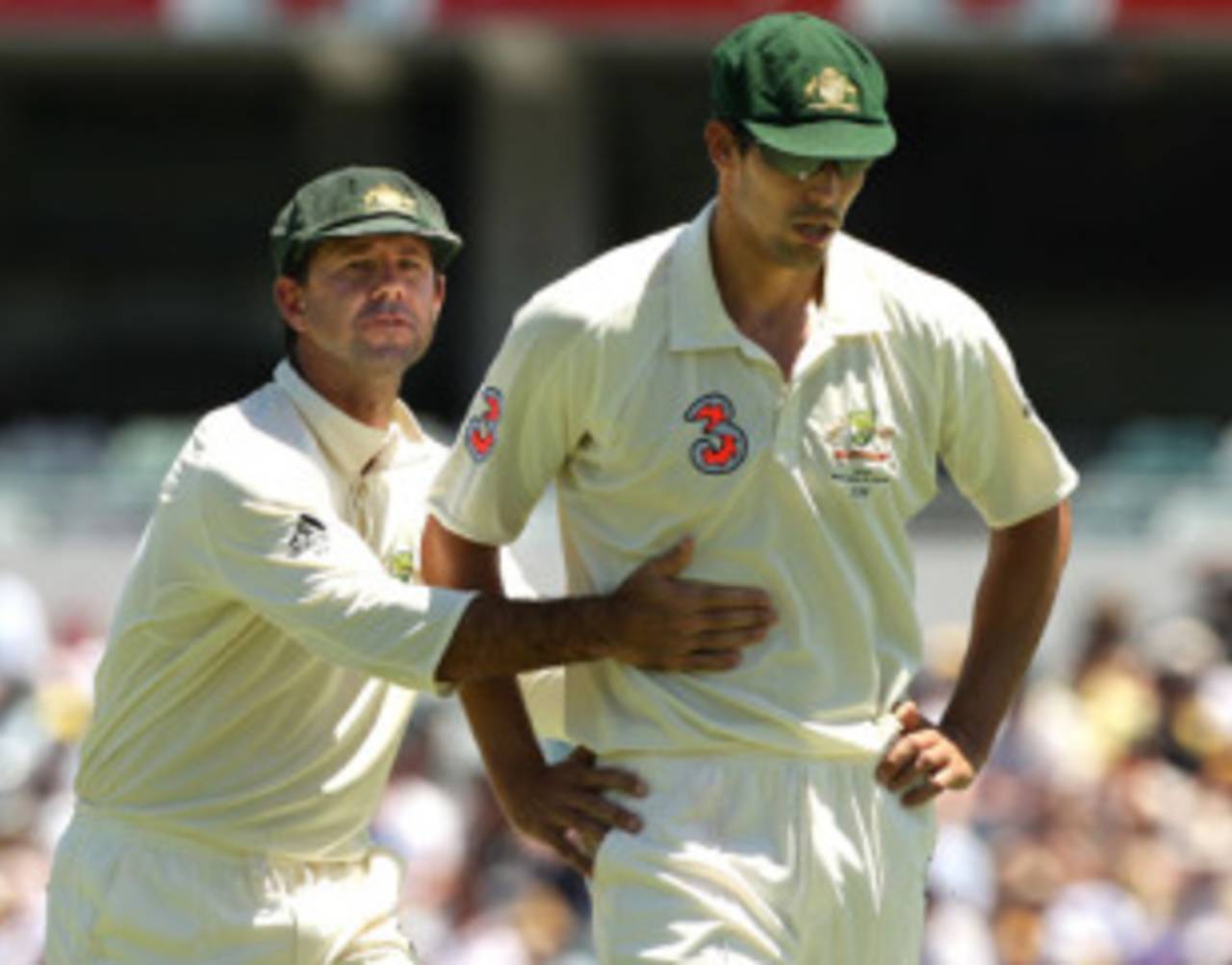An overwhelming majority of Australian cricketers believe players will turn down central contracts in order to position themselves as Twenty20 "freelancers" in the coming seasons, prompting the Australian Cricketers' Association chief
Paul Marsh to describe the issue as "one of the biggest cricket has faced." The findings, published in the
ACA's annual survey of national and state cricketers, also revealed almost a quarter of Cricket Australia's 25-man contract list would consider declining future offers from the national board to expand their playing options.
Asked whether they envisaged Australian players following the freelance path taken by Andrew Flintoff earlier this year, 67% of surveyed cricketers responded in the affirmative. Of those, 22% of CA contracted players said they would consider making such a move now, with another 39% stating they were unsure. No players had considered the move previously.
A reduction in touring commitments, greater earning potential, fewer physical demands and the avoidance of scheduling conflicts with the IPL were among the factors players said would be taken into consideration when deciding whether to pursue freelance careers. Almost half the cricketers surveyed said they were open to the idea of early retirement to pursue careers in the IPL, with another 30% listed as unsure.
But not all was doom and gloom for national boards. In a promising development for the game's traditional employers, the prestige of representing Australia was rated by both state and national players as the factor that would most weigh on their minds when deciding whether to play as a freelancer, indicating that the lure of IPL riches has not entirely replaced that of the baggy green cap in the hearts, minds and pockets of Australia's cricketers.
"The reality is that the boards no longer have a monopoly over the players' services," Marsh told Cricinfo. "There are new and lucrative options available to players and not surprisingly many around the world are giving serious consideration to their futures. Our players are well paid, but a competition such as the IPL in many cases provides more money for less work. That's a proposition most people would accept in a heartbeat.
"As such I think the issue of freelancing will be one of the biggest that cricket has faced. I hope, for the game's sake, we can find a solution that doesn't see players choosing IPL over international cricket. The survey reinforces that our players still have a desire to play international cricket so in order to retain them, those running the game must firstly ensure that the scheduling of international cricket doesn't conflict with events such as the IPL. Secondly, a period of player leave must be factored into the schedule so that players can play international cricket and IPL as well as having an annual break to allow their bodies to recover and so they can spend time with their families."
Saturation scheduling was highlighted as the greatest concern held by players in the poll. Only 18 % of CA contracted players said they supported the
Future Tours Programme in its current format, with 78% voting for a world championship Test model. Entering the final stages of a 2009 campaign in which Australia were scheduled to play 13 Tests, 39 one-day internationals and nine Twenty20 matches across seven countries, only 29% of CA contracted players felt the current scheduling mix was appropriate - down from 43% last year.
Almost 80% of Australia's elite players felt too many ODIs were being scheduled - more than double the figure from 2008 - and most felt bi-lateral 50-over series should be restricted to five games. The management of players' workloads by resting them from selected 50- and 20-over matches proved most unpopular - 86 % were against the ploy.
"The reality is that the boards no longer have a monopoly over the players' services"
Paul Marsh
To alleviate the issues of over-scheduling and IPL conflicts, Marsh called upon administrators to include nine-week annual windows in the new FTP, which will run from 2012 to 2020. He also implored boards to grant players an additional annual leave period to reduce the risk of player burn-out.
"We believe these windows must be provided if the international game is to retain its elite players," he said. "The ICC and its member boards need to accept that less international cricket will need to be scheduled moving forward. The opportunity for these boards is to make each game of international cricket more valuable and we strongly believe greater context is the answer. In our view international cricket desperately needs context in the form of global Test, ODI and T20 championships so that every game has meaning amongst players and fans."
Alex Brown is deputy editor of Cricinfo
